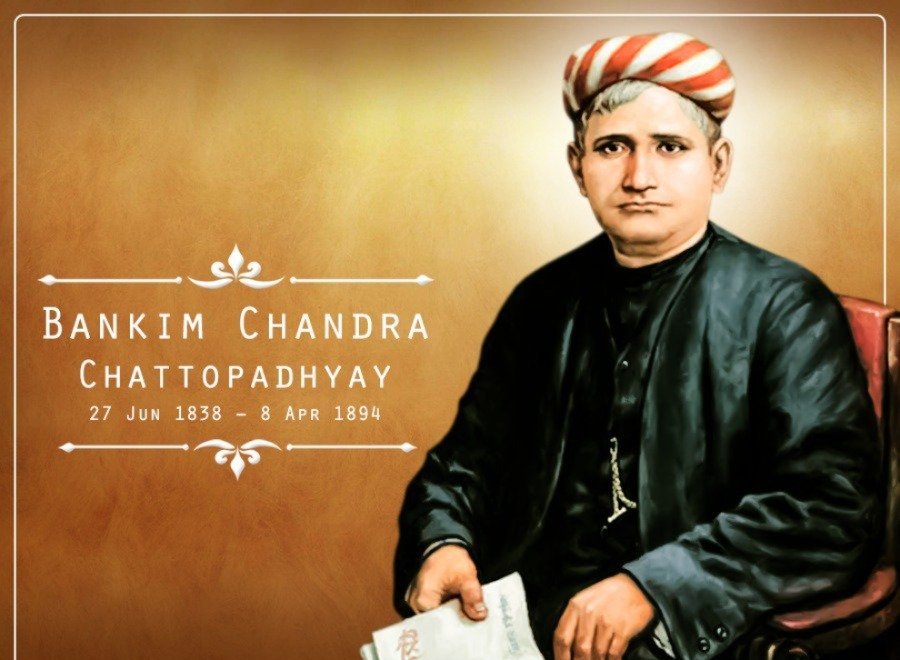
On the occasion of his Punyatithi (death anniversary), tributes were paid to one of the greatest literary figures of India, Bankim Chandra Chattopadhyay, whose works have left an indelible mark on Indian literature. Born on June 27, 1838, in Naihati, West Bengal, Bankim Chandra was not just a renowned poet and novelist, but also a significant figure in the cultural and intellectual history of colonial India.
A Pioneer in Bengali Literature
Bankim Chandra Chattopadhyay is often hailed as the ‘Sahitya Samrat’ (Emperor of Literature), and for good reason. His works, particularly his novels, brought a revolution in Bengali literature, blending the essence of Indian culture with the influences of Western literature. His mastery over the Bengali language and his profound insights into the social, political, and cultural issues of his time made him a literary giant.
His Contribution to Literature
Bankim’s magnum opus, “Anandamath” (1882), remains one of the most important works in Indian literature. It is in this novel that the famous patriotic song “Vande Mataram” was first introduced, which later became the rallying cry of India’s freedom struggle. The song continues to inspire generations of Indians and is a symbol of national pride and unity. Bankim’s novel not only depicted the struggle for freedom but also portrayed the strength and unity of the Indian people, making it a timeless masterpiece.
Another significant contribution was his work “Durgeshnandini” (1865), a historical novel that introduced the genre to Bengali literature. His novels such as “Kapalkundala” (1866), “Rajmohan’s Wife” (1864), and “Krishnakanta’s Will” (1866) showcased his brilliance in blending romance, adventure, and drama with deep psychological and emotional insights.
Bankim’s Philosophy and Nationalism
Beyond his literary contributions, Bankim Chandra’s thoughts and ideas significantly influenced the Indian nationalist movement. His writings expressed deep nationalistic fervor, advocating for the self-awareness and self-respect of the Indian people in the face of British colonial rule. He believed in the revival of India’s ancient traditions and values, and through his works, he encouraged the people to rise above divisions and come together for the country’s progress.
His “Bengali novels” were not just tales of love or family but carried an underlying message of national unity, social reform, and an inherent faith in the power of Indian spirituality and culture. His works helped sow the seeds of intellectual awakening in Bengal and throughout India, laying the groundwork for the subsequent freedom struggle.

A Lasting Legacy
Bankim Chandra Chattopadhyay’s legacy extends far beyond the pages of his novels. His contribution to the Bengali language, literature, and culture, as well as to the nationalist cause, remains monumental. He is regarded as a pioneer of modern Bengali prose, and his works continue to be widely read, studied, and admired.
On his Punyatithi, we not only remember the immense literary genius that he was but also honor his role in shaping the intellectual and cultural landscape of India. Through his writings, Bankim continues to inspire readers to think critically about the society, the nation, and the identity.
As we pay tribute to Sahitya Samrat Bankim Chandra Chattopadhyay on his Punyatithi, it is essential to reflect on the impact he made on literature and the nation’s freedom movement. His words continue to inspire us to strive for a united, prosperous India, and his literary works remain an important part of India’s rich literary heritage. Bankim Chandra Chattopadhyay’s work is a reminder of the power of words and ideas in shaping a nation’s soul and identity. His timeless contributions to literature, culture, and the national spirit will never fade, continuing to echo in the hearts and minds of generations to come.

